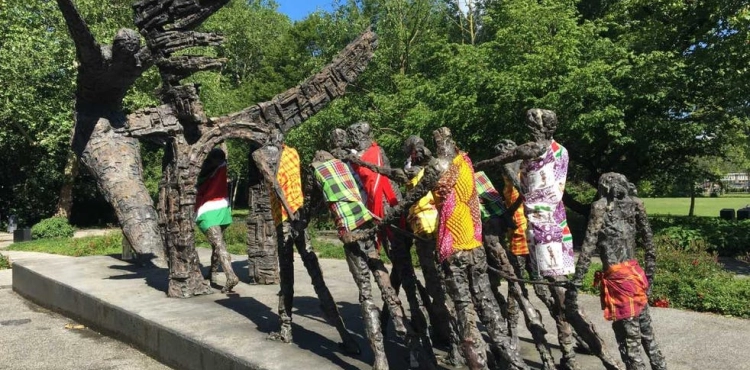The mayor of Amsterdam has apologized for the municipality´s role in the colonial past and the slave trade that brought wealth and prosperity to the Dutch capital.
"On behalf of the municipality, I offer my apologies for the actual participation of the Amsterdam City Council in the colonial slave trade system and the global trade in enslaved people," Mayor Vimke Halsema said.
In the Netherlands and a number of other European countries, the debate about colonial pasts and slavery has returned after the Black Lives Matter movement in the United States.
“It is time to include the great injustice of colonial slavery in the identity of our city,” Halsema said in a speech marking the anniversary of the abolition of slavery in Suriname and the Caribbean part of the kingdom on July 1, 1823.
At the height of the expansion of its colonial empire, the "United Territories", that is, the present Netherlands, had seven colonies in the Caribbean, including Suriname and Curaçao, in South Africa and present-day Indonesia, which was the stronghold of the Dutch East India Company in the seventeenth century.
Halsema said that the territory of the Netherlands, of which Amsterdam was a part, was "a major party in the slave trade and exploitation," noting that "forty percent of economic growth in the eighteenth century came from slavery."
"In Amsterdam, almost everyone made money from the Suriname colony, and the city council, which was co-owner and co-manager of the colony," she added.
The Dutch capital is the first city in the country to offer its apologies, and Rotterdam, Utrecht and The Hague may soon follow, which are currently looking into the matter.
At the national level, the Netherlands has not formally apologized for its role in the slave trade.
For outgoing Prime Minister Mark Rutte, the time is long gone and the debate over apologies will only reignite tension.












